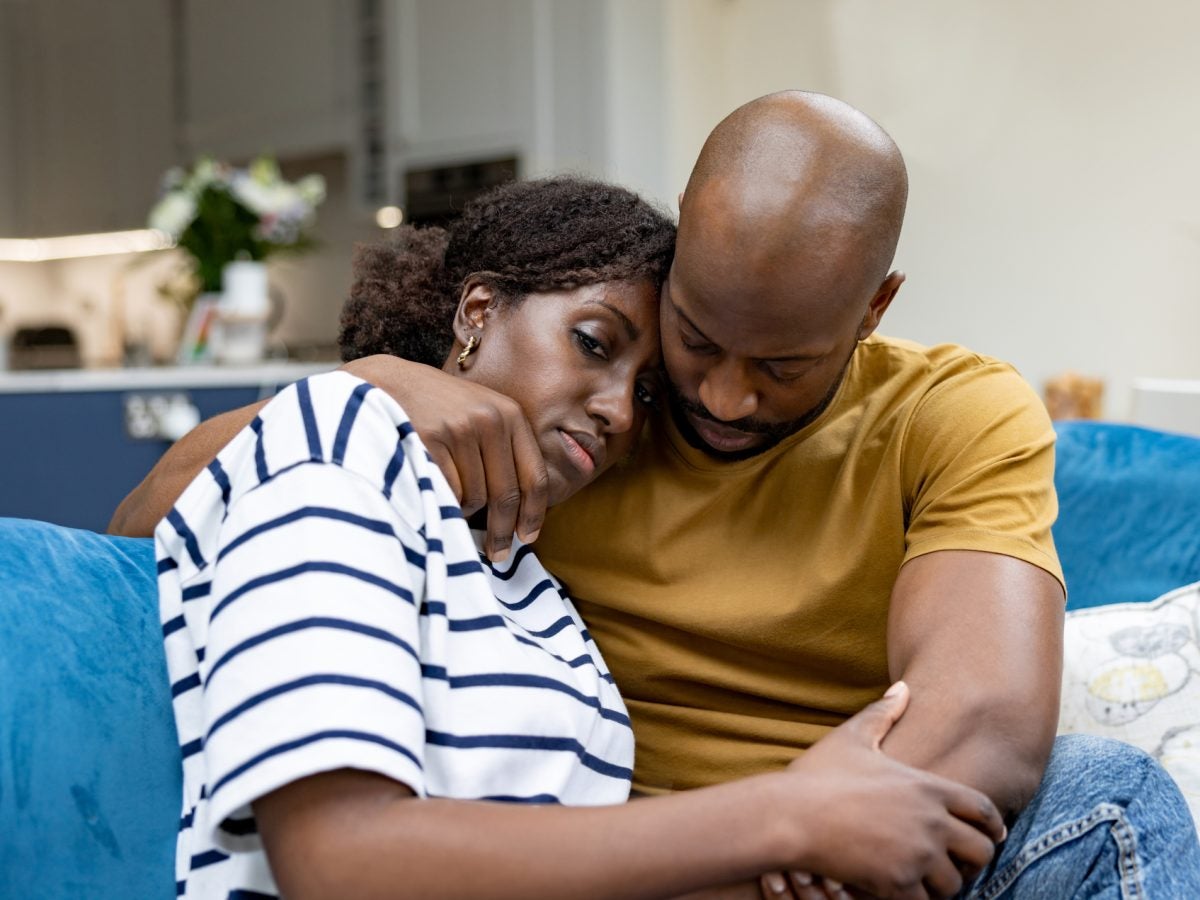
In the year 2016, mother and domestic abuse survivor Maggie Henry attempted suicide twice. Not only were the efforts a complete shock to her loved ones, but they were also a shock to Henry, herself. She had never experienced suicidal ideations prior to finding herself in such a dark place.
“It was surprising that I didn’t have any thoughts of suicide before my first attempt. I believe I had a ‘normal’ childhood. That’s why my family was taken aback when it happened because it was so unlike me,” she recalls to ESSENCE.
But Henry, as she would later realize, was “sick.” She’d been suffering with depression and after her first attempt, leaving her hospitalized for six days, she returned home for another six days before she attempted to end her life again. It wasn’t until she was hospitalized for three weeks, forgoing contact with the outside world, that she realized something needed to change. She finally had the space and opportunity to focus on her mental health and get the help she needed.
“At first, I hated it but then I realized I didn’t have to be anyone but me. I wasn’t a mom anymore, I wasn’t a daughter, I was just me for the first time in a long time,” Henry says. “This gave me time to work on me and to find me without all the other baggage.” She would leave treatment with the tools necessary to fight her depression, which she says she still battles with daily. Her loved ones have also been equipped with the guidance to help her do so, watching out for the signs that led up to a breakdown in the past, including attempting to push people away. She still confronts the same emotions that she felt in 2016, but she, and her family, can better manage them and know when to get her the help she needs.
These days, Henry is attempting to be that help for others. Part of the American Foundation for Suicide Prevention, she found community in the health organization’s Out of the Darkness Walks. She’s the Broome/Tioga Out of the Darkness Walk Chair of Greater Central NY Chapter for the AFSP. These walks take place in cities around the country, allowing those impacted by suicide and their family and friends to feel seen and heard. The walks also raise awareness and money to support efforts to save lives.
“I was looking on Facebook for any kind of support group for others like me. I found an Out of the Darkness Walk. After the first walk, I knew I wanted to be a part of this. I didn’t only find others like me, but I found a place where I could tell my story and help others through their darkest times,” she recalls. “I realized at my first walk, my depression didn’t get the best of me for a reason. I believe I had to live through everything so I could help someone else. AFSP helps me to do just that.”
With the walks in mind, as well as AFSP’s moving PSA campaign, “Talk Away the Dark,” the message is clear: We need to have conversations about suicide attempts and what’s behind them, and when doing so, know that the idea that this encourages people to make attempts is false.
“Suicide isn’t something that we need to be quiet about,” she says. “By talking about it we open the door to others to realize it’s okay to ask for help, it’s okay to have these emotions and it’s not okay to ignore them. AFSP has given me the voice that I needed to not only share my story but to deal with my story.”
“By speaking up about my past, I have had so many people approach me who have needed help or lost someone. If we don’t talk about it, we can’t help to prevent it from happening,” she adds. “We can prevent it by giving someone the strength and voice they need to speak up about what they are going through.”
During the walks, participants wear “honor beads,” and each color represents someone’s experience. Green beads signify one’s personal struggle with suicidal ideation or attempts, while wearing teal is to support someone who struggles or has attempted. There are also a variety of other shades to stand for those who’ve been affected by the loss of a loved one who died by suicide.
“The honor beads tell someone’s story without them even saying a word. It brings strangers together to be open about their feelings and thoughts. No matter why someone is there, it makes us all into a family we didn’t know we needed who share a common connection,” she notes. “But we want to make this tragic situation into something good. We want to help each other shine the light and maybe help save someone’s life too. Even just one person is better than none.”
The Out of the Darkness Walks have been very impactful, for Henry and hundreds of thousands of other people around the U.S. who have experienced them. It’s one step, a first and important one for many, in helping people see the light at the end of a tunnel.
“When I was at my first group meeting the first time I was at the hospital, I opened a book and the first thing I read was, ‘For every dark night, there is a brighter day!’ And to this day, I still live by this,” Henry says. “No matter how bad the situation is, I have found that if I just go to bed, tomorrow is a new day.”
September is Suicide Prevention and Awareness Month. Learn more about the #TalkAwayTheDark campaign by visiting afsp.org. And if you know someone in crisis, help is available by calling or texting the 988 lifeline network.





